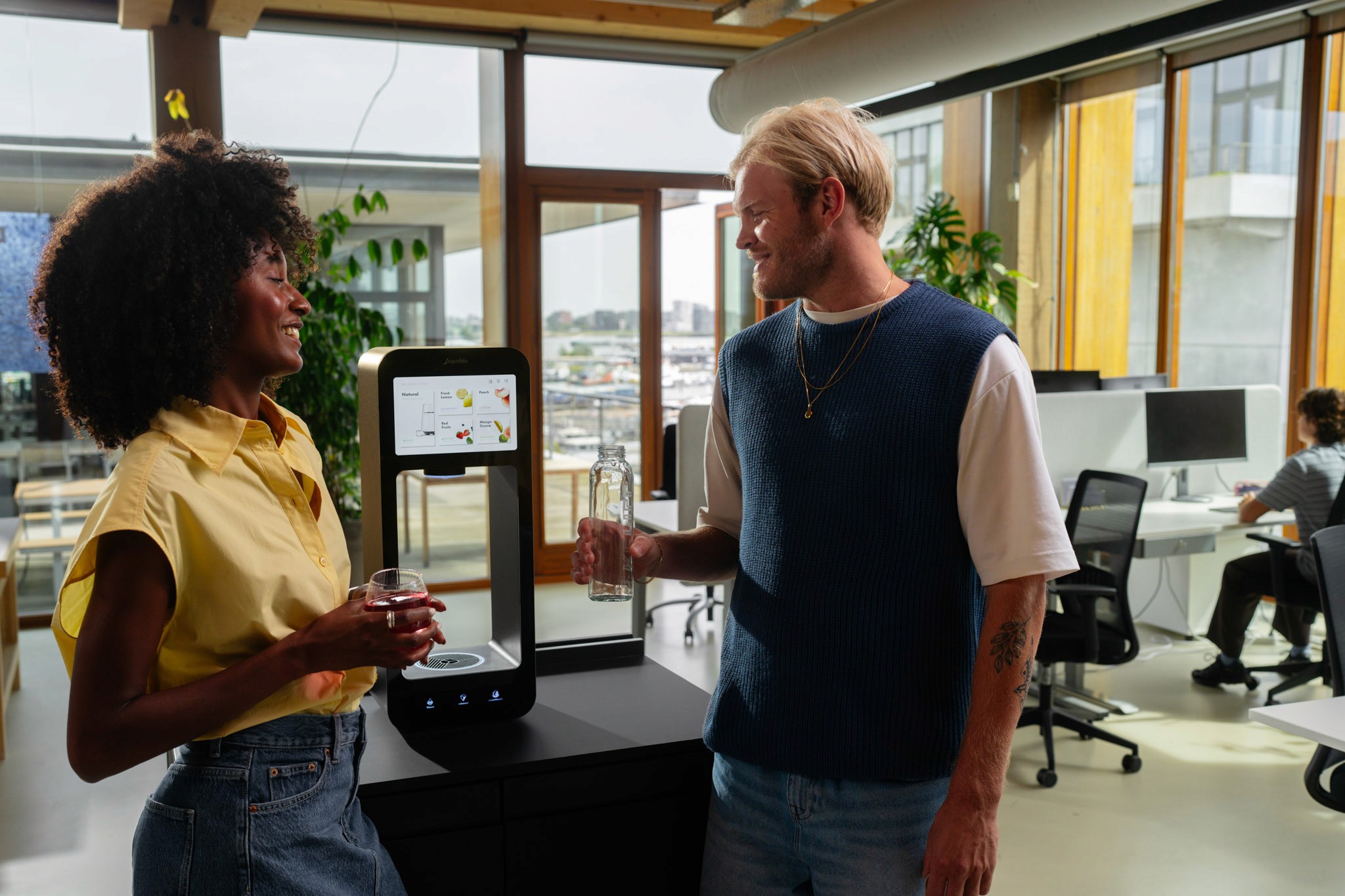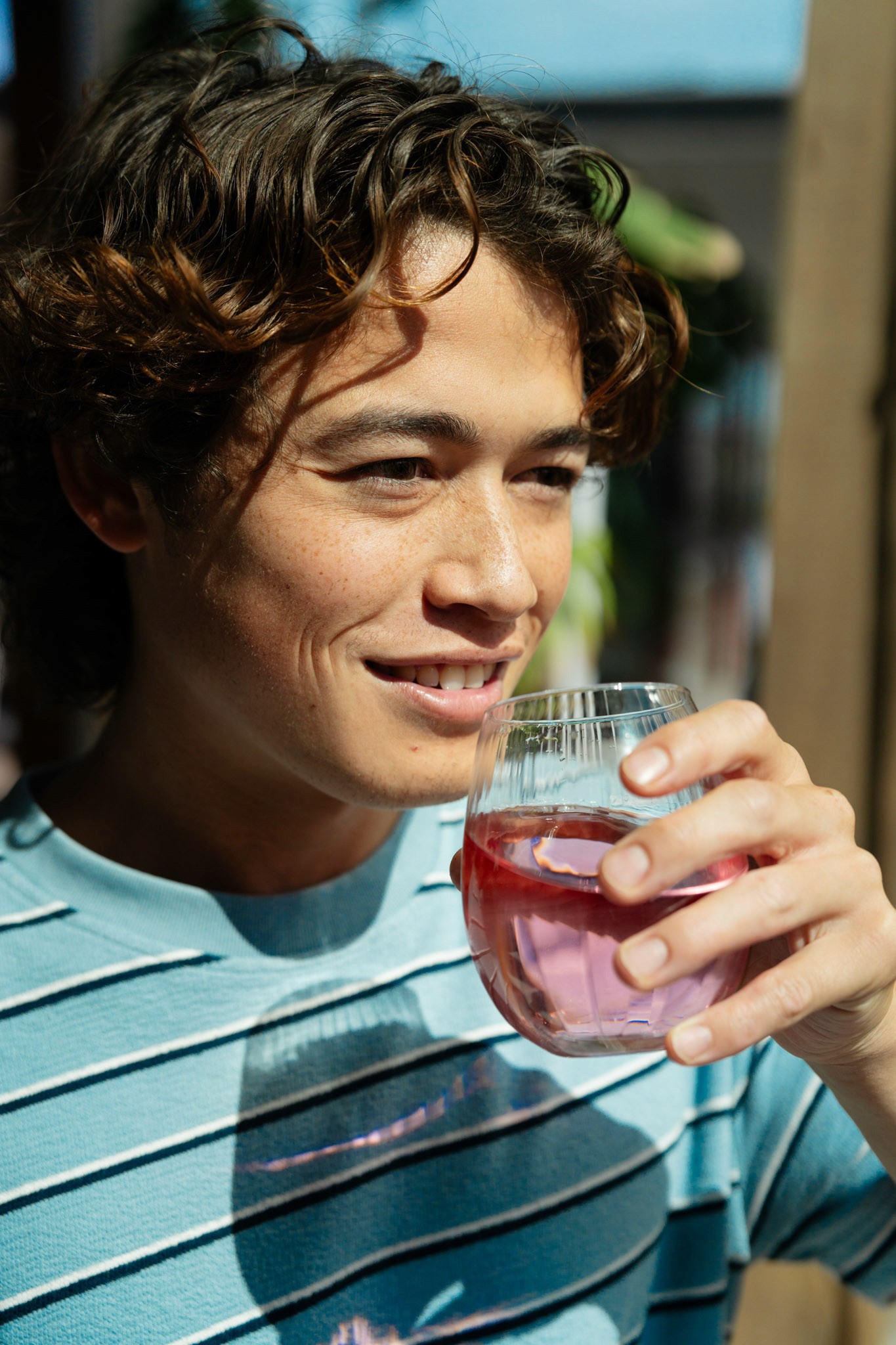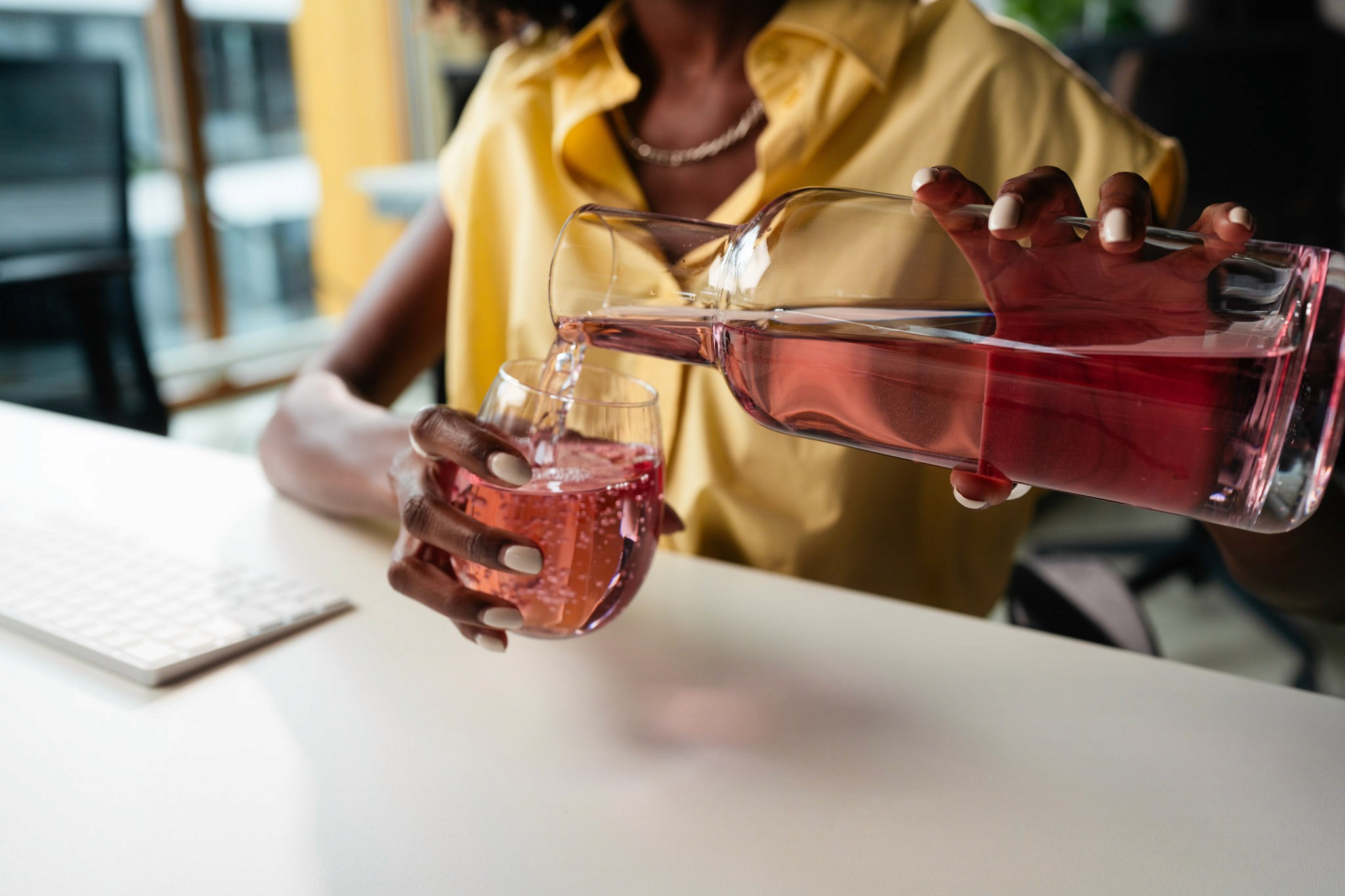You're drinking plastic, not water
You're drinking plastic, not water
5 min
5 min
5 min
|
|
|
5 min
|



Feeling thirsty and considering buying a nice cold and refreshing water bottle? Well, surprise! You’re actually drinking tiny bits of plastic called microplastics. Plastic is the new horror story of this century. Both you and the environment are paying for it. Plastic water bottles and other bottled beverages in plastics are now a serious problem. And we humans make it happen. When you’re buying a plastic bottle, you’re contributing to the single use plastics problem without knowing it, but moreover, you are also drinking plastic.
THE UP- BUT MAINLY DOWNSIDE OF PLASTIC BOTTLES
Plastic water bottles have become a ubiquitous presence in our daily lives, with many people relying on them for convenient hydration on the go. Sometimes bottled water offers a more secure quality of water compared to tap water. Although we are one of the countries with the cleanest drinking water in the world.
However, the production and distribution of these plastic bottles have a significant environmental cost, including a large carbon footprint and potential harm to wildlife and marine ecosystems.
Yes, the modern horror story of plastic.






PLASTICS IN YOUR BOTTLE OF WATER
But not all plastics are visible for everyone to see. We’re talking about tiny bits of plastics that are invisible for the normal eye.
Nowadays, plastics can be found everywhere. In our rivers, the air we breath, in our tap water (when not filtered with a water treatment system like the Aquablu REFILL) and even in our bellies. Due to a wide spread use of plastics globally and inadequate recycling, we have plastics everywhere. We call this microplastics: tiny bits of plastics that break down through weathering or wear and end up in our environment. These microplastics pollute the air we breath, the food we eat and the water we drink. Even bottled mineral water now contains microplastics. But what is the amount of plastics that we consume when drinking water from a plastic water bottle?
A recent study by researchers from the University of Wageningen published shocking results in the journal of Hazardous Materials. Out of three random brands that sell bottled mineral water, they found an average of 96 particles of 10 micrometers per liter.
A previous similar study in different parts of the world, including Brazil, India and USA, even showed worse results. They found 300 microparticles per liter.
Both studies clearly show that microplastics are now part of our body. If we like it or not.
HOW BAD IS IT? THESE AMOUNTS OF MICROPLASTICS IN OUR BELLIES
The good news of this modern horror story is that most of the microplastics in our bodies are carried away when we go to the toilet. But not all. Earlier this year, scientists of the VU discovered several plastics in the blood of the test subjects like PET, polyethyleen and PFAS. The average per person was 1,6 milligram per milliliters. And this is not without risk. Eventually, this can lead to chronic inflammation. Maybe even worse, depending on your vitality and immune system.
If the accumulation of these plastics in our fabrics continues to occur, our health can be negatively affected. Especially when we think about the fact that the amount of plastics (and microplastics) is still increasing globally.
PLASTICS IN YOUR BOTTLE OF WATER
But not all plastics are visible for everyone to see. We’re talking about tiny bits of plastics that are invisible for the normal eye.
Nowadays, plastics can be found everywhere. In our rivers, the air we breath, in our tap water (when not filtered with a water treatment system like the Aquablu REFILL) and even in our bellies. Due to a wide spread use of plastics globally and inadequate recycling, we have plastics everywhere. We call this microplastics: tiny bits of plastics that break down through weathering or wear and end up in our environment. These microplastics pollute the air we breath, the food we eat and the water we drink. Even bottled mineral water now contains microplastics. But what is the amount of plastics that we consume when drinking water from a plastic water bottle?
A recent study by researchers from the University of Wageningen published shocking results in the journal of Hazardous Materials. Out of three random brands that sell bottled mineral water, they found an average of 96 particles of 10 micrometers per liter.
A previous similar study in different parts of the world, including Brazil, India and USA, even showed worse results. They found 300 microparticles per liter.
Both studies clearly show that microplastics are now part of our body. If we like it or not.
HOW BAD IS IT? THESE AMOUNTS OF MICROPLASTICS IN OUR BELLIES
The good news of this modern horror story is that most of the microplastics in our bodies are carried away when we go to the toilet. But not all. Earlier this year, scientists of the VU discovered several plastics in the blood of the test subjects like PET, polyethyleen and PFAS. The average per person was 1,6 milligram per milliliters. And this is not without risk. Eventually, this can lead to chronic inflammation. Maybe even worse, depending on your vitality and immune system.
If the accumulation of these plastics in our fabrics continues to occur, our health can be negatively affected. Especially when we think about the fact that the amount of plastics (and microplastics) is still increasing globally.
PLASTICS IN YOUR BOTTLE OF WATER
But not all plastics are visible for everyone to see. We’re talking about tiny bits of plastics that are invisible for the normal eye.
Nowadays, plastics can be found everywhere. In our rivers, the air we breath, in our tap water (when not filtered with a water treatment system like the Aquablu REFILL) and even in our bellies. Due to a wide spread use of plastics globally and inadequate recycling, we have plastics everywhere. We call this microplastics: tiny bits of plastics that break down through weathering or wear and end up in our environment. These microplastics pollute the air we breath, the food we eat and the water we drink. Even bottled mineral water now contains microplastics. But what is the amount of plastics that we consume when drinking water from a plastic water bottle?
A recent study by researchers from the University of Wageningen published shocking results in the journal of Hazardous Materials. Out of three random brands that sell bottled mineral water, they found an average of 96 particles of 10 micrometers per liter.
A previous similar study in different parts of the world, including Brazil, India and USA, even showed worse results. They found 300 microparticles per liter.
Both studies clearly show that microplastics are now part of our body. If we like it or not.
HOW BAD IS IT? THESE AMOUNTS OF MICROPLASTICS IN OUR BELLIES
The good news of this modern horror story is that most of the microplastics in our bodies are carried away when we go to the toilet. But not all. Earlier this year, scientists of the VU discovered several plastics in the blood of the test subjects like PET, polyethyleen and PFAS. The average per person was 1,6 milligram per milliliters. And this is not without risk. Eventually, this can lead to chronic inflammation. Maybe even worse, depending on your vitality and immune system.
If the accumulation of these plastics in our fabrics continues to occur, our health can be negatively affected. Especially when we think about the fact that the amount of plastics (and microplastics) is still increasing globally.
PLASTICS IN YOUR BOTTLE OF WATER
But not all plastics are visible for everyone to see. We’re talking about tiny bits of plastics that are invisible for the normal eye.
Nowadays, plastics can be found everywhere. In our rivers, the air we breath, in our tap water (when not filtered with a water treatment system like the Aquablu REFILL) and even in our bellies. Due to a wide spread use of plastics globally and inadequate recycling, we have plastics everywhere. We call this microplastics: tiny bits of plastics that break down through weathering or wear and end up in our environment. These microplastics pollute the air we breath, the food we eat and the water we drink. Even bottled mineral water now contains microplastics. But what is the amount of plastics that we consume when drinking water from a plastic water bottle?
A recent study by researchers from the University of Wageningen published shocking results in the journal of Hazardous Materials. Out of three random brands that sell bottled mineral water, they found an average of 96 particles of 10 micrometers per liter.
A previous similar study in different parts of the world, including Brazil, India and USA, even showed worse results. They found 300 microparticles per liter.
Both studies clearly show that microplastics are now part of our body. If we like it or not.
HOW BAD IS IT? THESE AMOUNTS OF MICROPLASTICS IN OUR BELLIES
The good news of this modern horror story is that most of the microplastics in our bodies are carried away when we go to the toilet. But not all. Earlier this year, scientists of the VU discovered several plastics in the blood of the test subjects like PET, polyethyleen and PFAS. The average per person was 1,6 milligram per milliliters. And this is not without risk. Eventually, this can lead to chronic inflammation. Maybe even worse, depending on your vitality and immune system.
If the accumulation of these plastics in our fabrics continues to occur, our health can be negatively affected. Especially when we think about the fact that the amount of plastics (and microplastics) is still increasing globally.
SUBSCRIBE
TO OUR
Don’t miss out—stay ahead of the wave with new flavors and product launches.
NEWSLETTER
SUBSCRIBE
TO OUR
NEWSLETTER
Don’t miss out—stay ahead of the wave with new flavors and product launches.
SUBSCRIBE
TO OUR
NEWSLETTER
Don’t miss out—stay ahead of the wave with new flavors and product launches.
SUBSCRIBE
TO OUR
Don’t miss out—stay ahead of the wave with new flavors and product launches.
NEWSLETTER
SUBSCRIBE
TO OUR
Don’t miss out—stay ahead of the wave with new flavors and product launches.